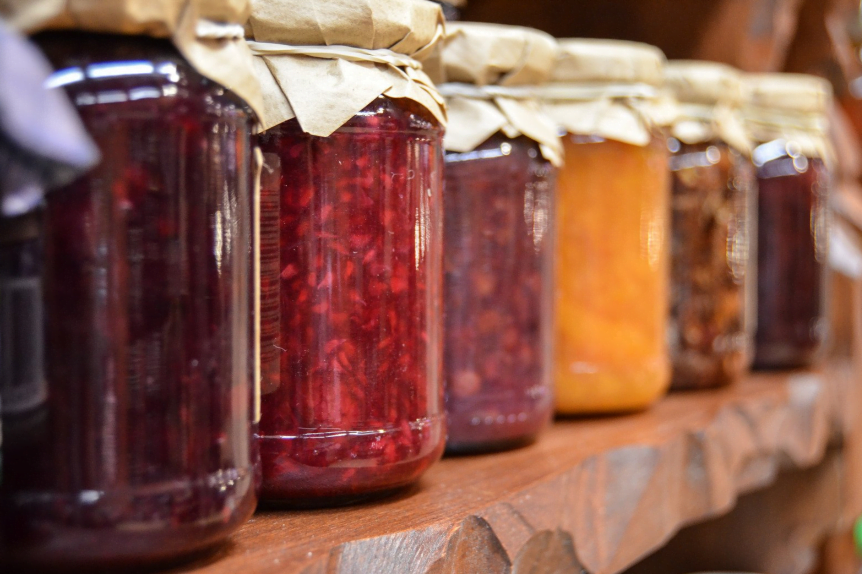Do I Need A License To Sell Homemade Food?
Looking to start a side-hustle and wondering “Do I need a license to sell homemade food”? The answer to this is maybe. While in most places you can sell some homemade foods – this will depend entirely on what you want to sell and where you want to sell it! In this article, we’ll be covering the basics of cottage food laws.
What is cottage food?
Cottage food laws refer to food which are made in a home kitchen. In most cases, these foods must be non-hazardous in order to protect public safety. For example, many states do not allow foods which must be pressure canned because there is too much to go wrong.
Cottage food laws – are you covered?
Do I Need A License To Sell Food From My Home?
In most cases, you will not. Though some states, such as Alabama, do require you to attend a food safety course, In other states, like Colorado, it is simply “strongly recommended” but not required. And, while most states do not require initial inspections or licensing, you could be subject to them if you were to receive a complaint from a consumer.
Manny states also have a sales limit. If you do not sell more than this, then you are covered under cottage food laws, BUT if you’re business expands beyond it there will be further licensing and regulatory requirements. This limits vary wildly, and one state may be less forgiving than another. However, the average is around $20,000 to $35,000 per year in sales. Though on the low side, Vermont allows only $6,500 per year, while other states, like Arizona, Arkansas, or Connecticut have no income limits in place at all!
In general though, food operations that do not need permits will be selling less than $20-$35k per year and they will not be dealing with any potentially hazardous foods.
What foods can you sell?
MOST states allow you to make foods in your home-kitchen under cottage food laws, but products are often restricted. For example, there is nowhere in the United States where you will be allowed to make meat products in a home kitchen. Meat is heavily regulated for safety, and ALL of these products must go through a licensed processing facility.
However, pretty much every state allows you to sell baked goods or confectioneries such as candies, or cookies. That’s because these items are deemed non-hazardous, and you would not be likely to make anyone sick by selling them. South Dakota, Tennessee, Oklahoma, South Carolina, Vermont ONLY allow the sale of confectionery and baked goods.
Pretty much every other state allows the sale of non-potentially hazardous foods. This includes things like jams, jellies, pickled vegetables, breads, popcorn, granola, and pastries. Though for the full list, you’ll need to look up your state’s specific cottage food laws to be sure.
However, a few states do allow some “potentially hazardous” foods to be sold from home kitchens. Maine for instance, allows you to sell anything produced in the home except products that require pressure cooking for sealing.
Who can I sell to and where?
Most states specify that you may only sell direct to consumers. However, there are a few exceptions, and states like Arizona, California, Maine, Massachusetts, New Hampshire, North Carolina, Oregon, Pennsylvania, and Utah may allow you to sell wholesale to restaurants or grocery stores as well as direct to consumers.
What about selling homemade food online? That one is a bit trickier. Many states do allow it but say you must deliver only to people within the state where you reside. It obviously gets really tricky trying to navigate whether or not it’s legal to send food items across state lines.
In short, cottage food laws are complicated and you should really be asking can you sell food from home in your state. Selling home cooked food to the public is not the easiest thing you’ll ever try to do, and you need to be sure things are done by the book. Because one complaint will shut down your entire business and potentially earn you a fine if you’re not adhering to your state’s laws!
How To Get A Permit To Sell Food From Home
If your state is not so open on cottage food laws, it’s not game over yet! In many cases, getting a food permit only requires you to take a short course which is around 4 hours of your time and potentially an inspection of the kitchen you will be using. If you’re serious about starting a food business, this is not a huge deal.
For those that require a commercial kitchen for their products, there are opportunities to rent commercial kitchens by the hour. This can help you to get off the ground if you can’t yet afford your own space. It’s a common method for food truck operators who use the kitchen to be compliant with their states laws.
Not sure whether or not you need to do this? Farm to consumer has a map and chart which can help you learn more. They list requirements by state and will help you figure out if you need a permit.

Bob learned about farming from his grand dad. So, the decision to leave the city and start homesteading was not a difficult transition. He now lives with his wife and two kids on their 30 acre property in Ohio.





